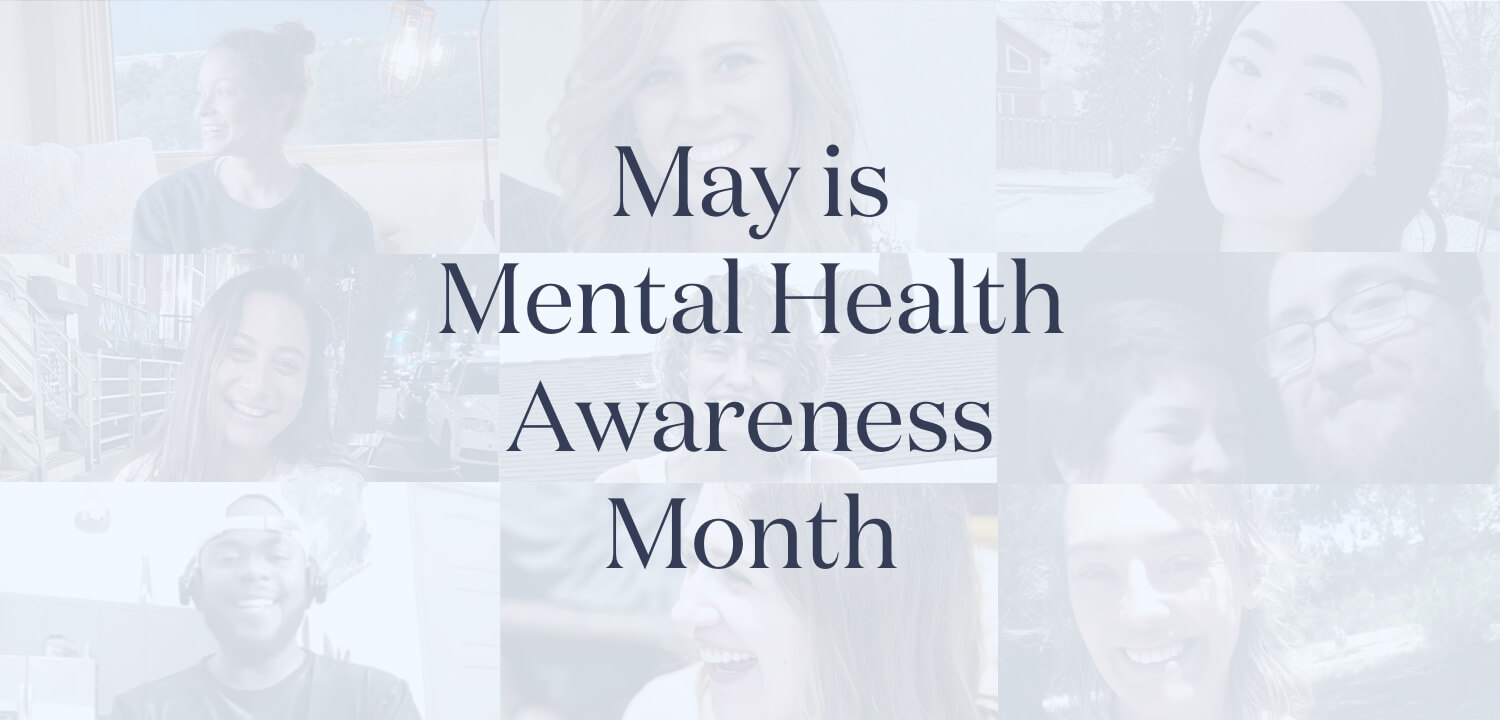Written by Ashley Kane,
Brightside Health
5 Minute Read

In March 2020, our lives were upended by a pandemic. Over a year later, we are still feeling the effects of COVID—not just in our everyday lives, but in our mental wellbeing. If the past year has taught us anything, it’s that we cannot take our health for granted, and that includes our mental health. May is Mental Health Awareness Month. Now more than ever, we need to open up the conversations surrounding mental health to break the stigma. Let’s explore the history of Mental Health Awareness Month, the purpose of the month, and how you can get involved in supporting the cause.
The Statistics
Mental illness is not uncommon. In fact, anxiety disorders are the most common mental health condition in the U.S., affecting 40 million adults every year—that’s 18.1% of the population.
An estimated 17.3 million adults in the U.S. have experienced at least one depressive episode. Additionally, the prevalence of adults with a major depressive episode is the highest among people aged 18–25.
Anxiety disorders commonly co-occur with depression, and nearly half of people diagnosed with depression also live with an anxiety disorder.
Anxiety and depression are highly treatable conditions, yet only about 37% of people suffering receive treatment. This is due to a variety of factors, including social stigma, shame and embarrassment, and accessibility and affordability of treatment.
The Purpose of Mental Health Awareness Month
Started in 1949, Mental Health Awareness Month aims to bring awareness to mental health and mental illness. All throughout the month of May, mental health organizations join forces to shine a spotlight on mental health and fight the stigma associated with mental illness.
One in five people will experience some form of mental illness over the course of their lifetime. Even if you don’t experience mental illness, you will still face challenges that impact your mental health and wellbeing, or someone you love will experience it.
Each year, we come together during this month to provide support for people living with mental illness and advocate for those who cannot advocate for themselves. We also use this time to encourage those struggling with their mental health to seek help. Help is available and there is no shame in reaching out for support.
Want to speak 1:1 with an expert about your anxiety & depression?
How You Can Participate in Mental Health Awareness Month
From sharing your own experience with mental illness, to providing resources and giving back, there is no shortage of ways you can get involved this month.
Share Your Story
Speaking about your experience with mental illness is an important and impactful way to break the stigma. Open up to friends, family, and loved ones about your own mental health journey. When you speak openly and candidly about mental health, you give others the courage to do the same. Most importantly, by sharing our own experiences, we can begin to normalize conversations about mental health and mental illness.
Share Mental Health Resources
Use your platform to share mental health resources with those who may need them. Social media is a powerful tool to connect people, and you never know who your posts may affect.
Feel free to share the following mental health resources with your own network:
- National Institute of Mental Health (NIMH): provides information on mental health statistics, clinical trials, and research
- Anxiety and Depression Association of America (ADAA): provides information on prevention, treatment, and symptoms of anxiety, depression, and related conditions
- The American Foundation for Suicide Prevention: provides referrals to support groups and mental health professionals, resources on loss, and suicide prevention information
- The 988 Suicide & Crisis Lifeline: call 800-273-TALK for free, confidential support available 24/7.⠀
Give Back
Volunteering your time is a great way to become a better mental health advocate and give back to organizations supporting the cause. You’ll not only actively help others, but you’ll also get the opportunity to directly engage with your local community as a mental health ally.
Here are a few ideas for how to get involved this month:
- Volunteer for a local mental health organization
- Attend an awareness walk or other event benefiting the mental health movement
- Encourage your local politicians to prioritize mental health resources in your community
- Correct and educate those who use stigmatizing language
Take Time for Your Own Mental Health
Practicing self-care is a great way to prioritize your mental health. It’s important for you to take care of yourself by engaging in regular exercise, a healthy diet, and in activities that bring you joy.
It’s also important to be aware of where you stand with your own mental health, so another idea is to commit to taking a mental health screening tool. There are many free mental health screening tools available, including the one on our website. Click here to take our free mental health assessment to understand where you stand.
Takeaways
May is Mental Health Awareness month. Together, we can work together to change how society views mental health and mental illness. This month and every month, continue the mental health movement by speaking out, sharing stories, and showing others that they are not alone. Our societal perception of mental health, including mental illness, will not change if we do not take action to change it ourselves.
If you are struggling with your mental health, help is available. Click here to get connected to one of our mental health Providers today.










